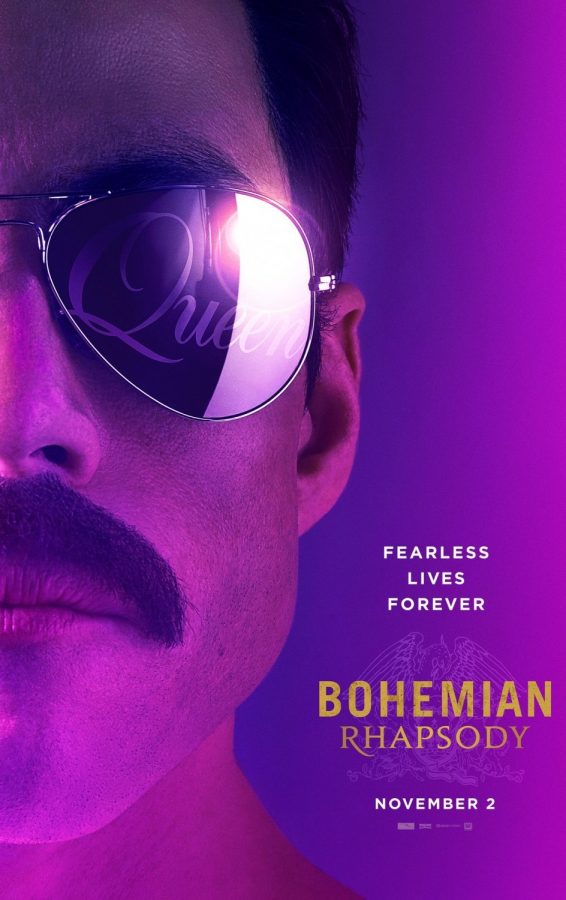“Bohemian Rhapsody” good, but not revolutionary
November 29, 2018
Queen’s music brings back nostalgia to generations above ours, while also instilling a longing for the past within the youth of today. Lead singer Freddie Mercury’s flamboyant stage presence allowed for him to make himself a symbol of the 1970s. Now, we have a film to remind us of the greatness of Freddie Mercury.
Bohemian Rhapsody released on Nov. 2, marking the first release of a movie that revolved around the legacy of Queen. Freddie was played by Rami Malek, who you may know from his hit television series, Mr. Robot. Malek portrayed Freddie in a way that was seemingly unimaginable; artificial teeth were glued onto his in order to make Malek look nearly identical to Freddie.
The plot starts off with Freddie going to see a live rock concert at a local bar. After the show, the lead singer leaves the band. Freddie approaches the members as they furiously sit in the back of their van, and offers to be their lead singer. Hence, Queen was born and the story unfolds from there.
There was an excessive amount of criticism towards the idea of a Queen film. Fans believes that no actor would ever be able to do Freddie justice, or that the film would neglect discussing Mercury’s sexuality. Malek is not gay or bisexual, which was the biggest concern by fans. They wondered if he would be able to depict a gay icon in a way that was respectful. It was clear that the film was meant to be a biography of Freddie Mercury with a specific emphasis on his career. The film does a great job balancing Freddie’s musical career with his personal life. In the first hour of the film, Freddie even outs himself as bisexual to his girlfriend, which leads to their breakup. On many occasions, romantic situations were left to assumption by the audience, which was likely due to the film’s PG-13 rating.
The film did a brilliant job depicting the life of Freddie Mercury. It was able to show the emotional despair felt by Mercury, often convincing the viewer to sympathize with him as well. The cinematography was not revolutionary, being on par with most blockbuster films these days, but I did appreciate the camera effects that made you feel emotional trauma as the characters did.
Bohemian Rhapsody ends with Queen’s 1985 performance at Live Aid, a charity event that helped raise funds to offset the Ethiopian famine. This scene gave me chills; London’s Wembley stadium was filled with over 100,000 fans singing along to Queen’s most popular anthems. The film then falls into a text sequence explaining what happens to Queen after the ending of the film to the song “Don’t Stop Me Now” (which also happens to be my favorite Queen song).
Despite knowing the fate of Freddie Mercury prior to my viewing, I was still drawn into the film, wondering what would happen next. However, nothing within this film was innovative. I was searching for something different than the standard Hollywood films of today, and I found a slightly-above-average movie with an incredible narrative.
